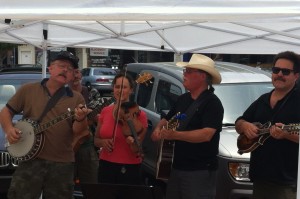Earlier today Coursera announced that Wesleyan is joining its partnership of schools offering MOOCs — massive, open, online classes that often enroll tens of thousands of people. MOOCs are not uncontroversial. Some see them as triggering watershed changes in higher ed, while others see basic contradictions in how they work. Founded by two computer science professors at Stanford, Coursera envisions reaching millions. Co-founder Daphne Koller’s TedTalk provides a good sense of the organization’s mission. It was launched with classes offered by professors from Stanford, Michigan, Princeton and Penn; and this summer a number of fine schools joined the partnership, among them Duke, UVA, Johns Hopkins and CalTech. This week another dozen are signing on, including Wesleyan, and we will be the first liberal arts institution to join that has an undergraduate focus.
The idea that Wesleyan will be offering free, massive online classes will strike some as paradoxical. We are a small university at which almost three quarters of the courses are taught in an interactive, seminar style. How is that related to online learning? In important respects the classes offered through Coursera are very different from the ones we teach here in Middletown. Although MOOCs start off with huge numbers of enrolled participants, a small percentage do the assignments, and an even smaller percentage finish. The retention rate at Wes, by any measure, is very high. Our residential liberal arts education depends on the ongoing interaction of students with one another and with faculty. MOOCs encourage interaction of a different sort: through social media and chat rooms. Nonetheless, we want to understand better how students learn in these contexts, precisely because they are so different from our own. And we think it is simply a good thing to share versions of our classes with the wider world. The Wes educational experience does not scale up — but we can make available online adaptations of our classes so that those with a desire to learn have access to some of what we have to teach.
Our work with Coursera will be an experiment with online education from which we are sure to learn. The courses we are developing now are not for Wesleyan credit — they are vehicles for teaching subjects we care about to a (very) wide audience. Professors don’t grade in MOOCs, but we do create assignments that are either machine graded or peer evaluated. We’re starting off with classes in classics, economics, film, and statistics. I’m working on an online version of my interdisciplinary humanities course, The Modern and the Postmodern. Even though I’ve been teaching this class for many years, I really don’t know how this will translate to the MOOC context. That’s why it’s an experiment.
Will online teaching have an impact on our education here on campus? It already has, with several professors using either a “flipped classroom” or a “blended” approach. Of course, our students and faculty use technology every day for research and teaching, and they are connected with others around the world who share their interests and from whom they learn.
Wesleyan has long been a champion of educational innovation, and this partnership with Coursera is just the latest step in that tradition. I think it’s an exciting one. Stay tuned (or should I say, “stay connected?”).



